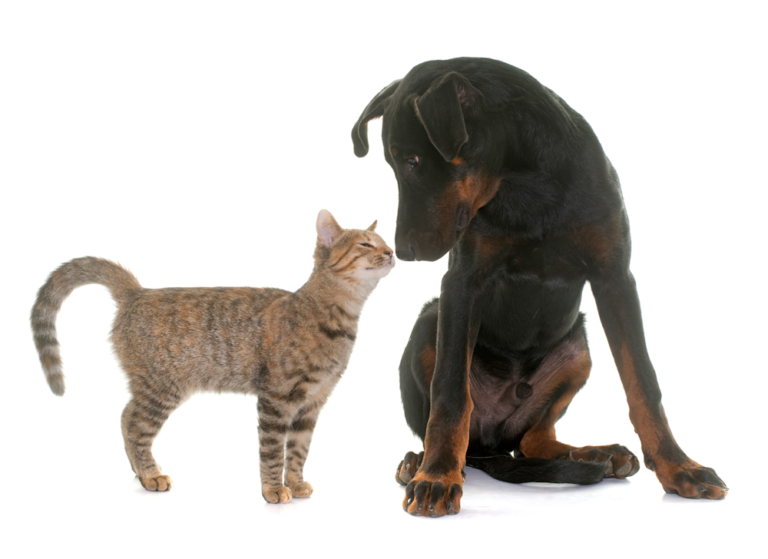Why Is My Dog Throwing Up
Last updated on March 14th, 2023 at 05:03 am
Reading Time: 7 minutesThis post may contain affiliate links. If you click and buy we may make a commission, at no additional charge to you.
Why Is My Dog Vomitting?
Dogs are generally a pretty healthy and resilient animals. There are some breeds that will have a weaker constitution than others and may be prone to different health problems, but generally speaking when your dog is throwing up it is likely a temporary issue and you can regulate to ensure it does not continue. If they are being sick in an unusual way, then you will need to know “why is my dog throwing up?”
In general dogs vomit when they’re uncomfortable or distressed in some way. Sometimes these are related to changes in their diets, a lack of regular exercise, and/or anxiety about their surroundings (for example if you take them for walks for the first time). Dogs also vomit because of parasites that can live inside them and cause more serious issues if left untreated.
The following are some of the reasons why a dog may be throwing up: (note we recommend communicating with your vet if anything seems prolonged or suspicious)
1. Abrupt diet change
The vomiting could be caused by a change in their diet such as when you introduce them to new food, supplements or even a new treat. Some dogs will also munch on grass when outside and that can make them throw-up. When it comes to dogs they can be extremely finicky and any sudden change in their diet can make them feel nauseous and end up vomiting. Regardless of what the change was, if your dog is vomiting after eating then it’s best consult with your vet for advice on what to feed them in future. In the meantime, you can switch them back to their original food if they still have some left.
2. Addison’s disease
This is a group of disorders that affect the adrenal glands, which are located on top of their kidneys.
Although there are millions of animals in our world, only approximately 10 percent of these cases are clinical in nature. Symptoms include vomiting, vomiting after eating certain foods, appetite loss and weight loss. As you can imagine this can be a serious condition and can even lead to death if it goes untreated. Chronic or continuous vomiting is a potential sign, communicate with your vet if this is a concern.
3. Bloat
This is where the stomach fills with gas. This can happen when your dog ingests a large amount of air, usually after eating a lot of food (especially gas-forming vegetables). Bloat is more likely to occur in larger breeds but can affect small dogs as well so it’s important to check their girth (with a tape measure) regularly.
The stomach can become so big that it twists on itself and if this is the case then it can be quite serious.
4. Gastrointestinal issues
There are a variety of problems that can arise with the gastrointestinal tract including diarrhea, vomiting and ileus, which is when there is a lack of intestinal motility causing food to ferment inside them. This can be caused by a parasite, toxic poisoning or overeating (all of which you should take your dog to the vet for).
5. Brain tumor
Tumors can occur in the brain, most commonly affecting the pituitary glands. These tumors are very rare in dogs and have a good prognosis. If your dog is vomiting it’s important to take them to their vet as soon as possible as they may need surgery to remove the tumor. The survival rate for this condition has improved over the years due to early detection, so if your dog is vomiting or you see that their behavior has changed it’s important to contact the vet as soon as possible.
6. Cancer
If your dog is having issues with vomiting after eating, it’s important to have their head checked by a vet.
Malignant tumors are very rare in dogs however if your dog does have one of these then it needs to be checked out as soon as possible. You should also contact the vet if you notice any other changes in their behavior or appetite, including excessive sleeping or drinking more than normal. The survival rate for most dog cancers is very good and depends on the type of tumor they have and how rapidly they are diagnosed.
7. Viral Infections
Distemper, parvovirus and coronavirus can be common in dogs. These can have vomiting as a symptom along with loos of appetite, lethargy, abdominal pains, bloating, bloody diarrhea. If you see your dog struggling with this illness then you should contact your vet immediately for advice on how best to treat them.
8. Drinking contaminated water
In general any substance that is put into the body in large amounts can cause vomiting. For example if your dog over drinks water, or it’s contaminated with something toxic then this can also cause vomiting. Pay attention to the water in your local area and ensure that there is no spillage or contamination with chemicals or other substances that could harm both you and your pet. The only way to treat this is to give your dog an emetic, which will flush out the toxins and if you notice your pet acting strangely or if they’ve been drinking dirty water then take them to the vet immediately.
9. Food allergies or intolerance
Dogs will often be allergic to certain types of food and refuse to eat it because of the adverse effects that it has on their bodies. This can be very serious since it could potentially cause seizures or even death. If your dog is continuously vomiting after eating then you should take them to the vet immediately. There are a variety of types of allergy in dogs, with dog skin allergies being the most common and easiest to treat, so it’s important that you take your dog as soon as possible for advice on how best to help them.
10. Intestinal parasites
If your dog is vomiting then the first thing that you should do is take them to the vet for a check up. Most of the time it’s not necessarily an intestinal parasite but instead a food intolerance causing these symptoms, however hypoallergenic diets and food additives can cause serious problems, including vomiting. If your dog is throwing up what appears to be blood then it’s best to take them for a blood test and have their tummy checked by a vet.
11. Kidney disease
Most kidney problems in dogs are serious and require immediate medical attention, so it’s important that you take your dog to the vet as soon as possible. If your dog is vomiting they may have an infection or blockage in the urinary tract that needs to be treated. The survival rate for these conditions can vary, but if you notice blood in them then it’s important that you take them to the vet immediately.
12. Megaesophagus
This is an abnormal enlargement of the esophagus. The esophagus is a tube that runs between the mouth and stomach so it acts as the pathway used for food to travel. When this tube enlarges, it can cause difficulty in eating and swallowing, so if your dog is vomiting after eating then they could have this condition. It’s important that you take them to the vet immediately if you suspect that they have this condition as it has a very high survival rate.
13. Meningitis
Meningitis is not common in dogs, but it can present with fever, vomiting, neck pain and rigid muscles and spasms. So if your dog is vomiting with unusual signs you should take them to the vet immediately. The best way to prevent this condition is to get them vaccinated for common canine diseases such as distemper and hepatitis. If your dog is vomiting then it’s important to take them as soon as possible.
14. Middle ear problem
If your dog is vomiting then it’s important to take them to the vet for a check up. Dogs have extra-large ears that can fill with a lot of fluid due to ear mites and other diseases so if you see that they are throwing up or their ears look yellow or red then this could be an indication of a middle ear infection. It’s important that you take your dog to the vet as soon as possible since there is a good prognosis if they are taken early on.
15. Motion sickness from riding in the car
This can be very dangerous for dogs and you should never take a dog riding in the car for a long period of time. If you do take them for a trip in the car it’s important to ensure that they get lots of rest since this could cause vomiting. If your dog has been vomiting after being in the car, then contact your vet immediately as it could be due to several different medical conditions.
16. Pancreatitis
Pancreatitis is a painful condition that is usually caused by inflammation in the pancreas, which is located next to the stomach. If your dog is vomiting then it’s important to take them immediately to the vet since they could be suffering from this disease. You should also be aware of some of the common symptoms of pancreatitis such as vomiting, abdominal pain, hunched back, and weight loss.
17. Parvovirus
Parvovirus is a very serious condition that can be fatal if left untreated. The symptoms that result from this infestation include vomiting, diarrhea, loss of appetite, and lethargy. It’s important to take your dog in for treatment as soon as you notice any signs of this disease. It’s a good idea to keep them isolated from other animals as well since they could spread this disease.
18. Reaction to a medication
Most mammals have a faster metabolism than humans, so you should take your dog to the vet immediately if they are vomiting after taking a medication. You can also take them in so that they can be monitored while they’re receiving treatment because they could be reacting badly to the medication that they were given.
In conclusion, if your dog is vomiting after having an upset stomach then there are several common causes that you should be aware of. If you suspect any of the more serious conditions listed then it’s important to see your vet immediately so that you can monitor their condition and get them the treatment they need.
If your vet is unavailable and you feel there may be a poison issue affecting your pet, you can call the ASPCA Animal Poison Control Center Phone Number: (888) 426-4435
About The Author
I'm a content writer and researcher. But bottom line, I loveee animals. I had my first animal which was a guinea pig at age 8. Later had a bunny, dog and a lot, a lot of fish. Writing about what I know about pets will allow me to share my knowledge and love for them with everyone else. Dealing with dogs my entire life, I know a lot.








